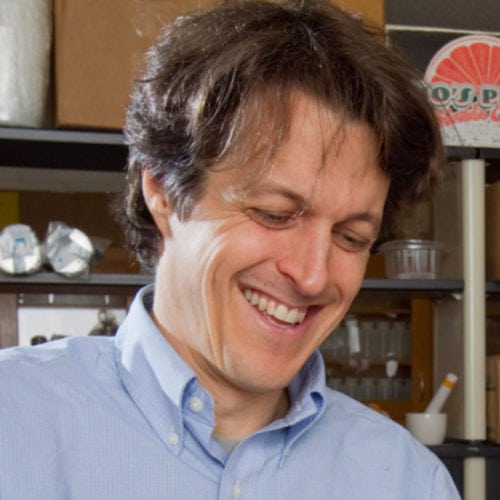Education
PhD, Ecology, Evolution, and Marine Biology, University of California Santa Barbara
Honors, Awards, and Achievements
Lamar Dodd Creative Research Award, University of Georgia, 2022.
Fellow, American Association for the Advancement of Science (AAAS), 2021.
The Outstanding Graduate Mentoring Award, University of Georgia, 2019.
Felton Jenkins, Jr. Hall of Fame Faculty Award, University System of Georgia, 2019. Superior commitment to teaching and student success, across all GeorgiaUniversities.
Fellow, Ecological Society of America (ESA), 2018
TEDxUGA Speaker, 2016. “Parasites: The Unlikely Heroes”.
Outstanding Undergraduate Research Mentoring Award, Center for Undergraduate Research Opportunities, University of Georgia, 2015.
Outstanding Teaching Award, First-Year Odyssey Seminar Program, Univ. of Georgia, 2014.
Richard B. Russell Award for Excellence in Undergraduate Teaching, Univ. of Georgia, 2012.
Research Interests
RESEARCH INTERESTS
- Marine community and population ecology
- Biological invasions
- Marine parasites and disease
- Ecosystem engineers
- Species range boundaries
- Marine reserves
- Conservation biology
RESEARCH PROJECTS
- Impacts of non-native species on native marine communities
- Mechanisms driving variation in parasites in nearshore communities
- Effects of parasites on communities and ecosystems
- Effects of black gill disease in shrimp
- Interactions between ecosystem engineers in the face of climate change
- Predicting species’ spread and distribution in coastal oceans
Selected Publications
Resetarits, E. J., W. T. Ellis, & J. E. Byers. 2023. The opposing roles of lethal and non-lethal effects of parasites on host resource consumption. Ecology and Evolution 13, e9973.https://doi.org/10.1002/ece3.9973.
Byers, J. E., J. A. Blaze, A. C. Dodd, H. L. Hall, &. P. E. Gribben. 2023. Exotic asphyxiation: interactions between invasive species and hypoxia. Biological Reviews 98: 150-167. https://doi.org/10.1111/brv.12900
Beauvais, J., N. Nibbelink, & J. E. Byers. 2023. Differential equity in access to public and private coastal infrastructure in the Southeastern United States. Ecological Applications 33(5): e2770. doi: 10.1002/eap.2770
Byers, J. E. 2022. Using ecosystem engineers to enhance multiple ecosystem processes. Functional Ecology. https://doi.org/10.1111/1365-2435.14130
Byers, J. E. 2021. Marine parasites and disease in the era of global climate change. Annual Review of Marine Science 13: 397-420.
Smith, R. S., J. A. Blaze, & J. E. Byers. 2021. Dead litter of resident species first facilitates and then inhibits sequential life stages of range-expanding species. Journal of Ecology 109: 1649-1664. doi: 10.1111/1365-2745.13538.
Alvarez-Noriega, M., S. C. Burgess, J. E. Byers, J. M. Pringle, J. P. Wares, & D. J. Marshall. 2020. Global biogeography of marine dispersal potential. Nature Ecology & Evolution 4: 1196-1203. doi: 10.1038/s41559-020-1238-y
Byers, J. E. 2020. Effects of climate change on parasites and disease in estuarine and nearshore environments. PLoS Biology 18(11): e3000743. doi: 10.1371/journal.pbio.3000743
Smith, R. S., J. A. Blaze, & J. E. Byers. 2020. Negative indirect effects of hurricanes on recruitment of range-expanding mangroves. Marine Ecology Progress Series 644: 65-74. doi: 10.3354/meps13351
Gribben, P. E. and J. E. Byers. 2020. Comparative biogeography of marine invaders across their native and introduced ranges. Oceanography and Marine Biology: An Annual Review 58: 395-440.
Chen, E., J. A. Blaze, R. S. Smith, S. Peng, & J. E. Byers. 2020. Freeze-tolerance of poleward-spreading mangrove species weakened by soil properties of resident salt marsh competitor. Journal of Ecology 108: 1725-1737. doi: 10.1111/1365-2745.13350
McDowell, W. G. and J. E. Byers. 2019. High abundance of a lone member of a functional guild gives an invasive species an outsized ecological role. Freshwater Biology 64: 577-586. doi: 10.1111/fwb.13243
Sotka, E. E. and J. E. Byers. 2019. Not so fast. Promoting invasive species to enhance multifunctionality in a native ecosystem requires strong(er) scrutiny. Biological Invasions 21: 19-25. doi: 10.1007/s10530-018-1822-0
Haram, L. E., K. A. Kinney, E. E. Sotka, & J. E. Byers. 2018. Mixed effects of an introduced ecosystem engineer on the foraging behavior and habitat selection of predators. Ecology 99(12): 2751-2762. doi: 10.1002/ecy.2495
Gehman, A. M., R. J. Hall, & J. E. Byers. 2018. Host and parasite thermal ecology jointly determine the effect of climate warming on epidemic dynamics. Proceedings of the National Academy of Sciences115(4): 744-749. doi: 10.1073/pnas.1705067115.
Byers, J. E., Z. C. Holmes, & J. C. Malek. 2017. Variation in strength of a trophic cascade influenced by contrasting complexity of adjacent habitats. Oecologia 185: 107-117. doi: 10.1007/s00442-017-3928-y
Keogh, C. L., O. Miura, T. Nishimura, & J. E. Byers. 2017. The double edge to parasite escape: invasive host is less infected but more infectable. Ecology 98(9): 2241-2247.

